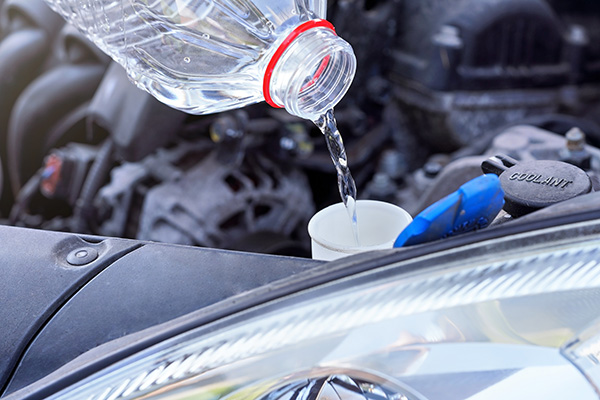
As summer temperatures soar, your car's cooling system becomes your engine's best friend. However, what if you've diluted your antifreeze with too much water? While it might seem like a quick and cost-effective solution, this can have serious consequences for your vehicle's performance and longevity. Let's explore what happens when you dilute antifreeze excessively with water in the summer and why maintaining the right balance is crucial.
The Role of Antifreeze in Your Engine
Antifreeze, also known as coolant, isn't just for preventing your engine from freezing in the winter. It's equally essential for keeping your engine cool during the scorching summer months. Antifreeze contains a mixture of water and chemicals like ethylene glycol or propylene glycol, which help raise the boiling point and lower the freezing point of the fluid. This unique formulation ensures that your engine operates within an optimal temperature range, regardless of external conditions.
Antifreeze contains corrosion inhibitors that protect your engine's internal components from rust and scale buildup. These inhibitors are vital for maintaining the efficiency and longevity of your vehicle's cooling system.
The Consequences of Over-Diluting Antifreeze
When you dilute antifreeze with too much water, you disrupt its carefully balanced formulation, leading to several potential issues:
Lower Boiling Point
The primary function of antifreeze is to elevate the boiling point of the coolant mixture. Pure water boils at 212°F, but antifreeze mixtures can raise this boiling point to around 223°F to 256°F. By diluting the antifreeze excessively, the boiling point decreases, making it easier for your engine to overheat under high temperatures.
Increased Risk of Overheating
With a lower boiling point, the coolant is more likely to evaporate, leading to inadequate cooling of the engine. This can result in your engine overheating, which can cause severe damage, such as warped cylinder heads or a blown head gasket.
Corrosion and Scale Buildup
Antifreeze contains additives that prevent corrosion and scale buildup inside the cooling system. When you dilute it with too much water, these protective additives become less effective. Over time, this can lead to rust and scale formation, clogging the radiator and reducing the efficiency of the cooling system.
Reduced Lubrication
Antifreeze also acts as a lubricant for the water pump and other components of the cooling system. Over-dilution reduces this lubricating effect, leading to increased wear and tear on these parts, potentially causing premature failure.
Balancing Water and Antifreeze
To maintain your engine's optimal performance, it's essential to keep the antifreeze and water mixture within the recommended ratio. Most manufacturers suggest a 50:50 mix of water and antifreeze. In extremely hot climates, a 60:40 or 70:30 ratio (favoring water) might be used to enhance cooling, but it's crucial not to dilute it beyond this point.
Signs of an Over-Diluted Coolant Mixture
If you've inadvertently over-diluted your antifreeze, there are some warning signs to watch for:
Engine Overheating
If your temperature gauge constantly reads high or you see steam coming from under the hood, your engine might be overheating due to an ineffective coolant mixture.
Coolant Loss
An over-diluted mixture may evaporate more quickly, leading to a noticeable loss of coolant. Check your coolant level regularly and top it off as needed.
Poor Heater Performance
In cooler weather, you might notice that your vehicle's heater isn't producing as much warmth as it should. This can be a sign that the coolant mixture isn't maintaining the correct temperature.
Preventive Measures and Maintenance Tips
Maintaining the right balance of antifreeze and water in your cooling system is key to preventing overheating and ensuring your engine runs smoothly. Here are some tips to help you keep your cooling system in top condition:
Regular Coolant Checks
Periodically check the coolant level in your radiator and reservoir. Make sure it's topped off with the correct mixture of antifreeze and water.
Coolant Flush
Over time, the coolant can become contaminated and lose its effectiveness. A coolant flush every two to three years, or as recommended by your vehicle's manufacturer, helps maintain the cooling system's performance.
Inspect for Leaks
Regularly inspect your cooling system for leaks. Leaks can lead to coolant loss and overheating, so it's crucial to address them promptly.
Monitor Engine Temperature
Keep an eye on your engine's temperature gauge, especially during hot weather. If you notice the temperature rising, pull over safely and let the engine cool before checking the coolant level.
Use Quality Antifreeze
Always use a high-quality antifreeze recommended by your vehicle's manufacturer. Mixing different types of antifreeze can reduce the effectiveness of the coolant.
Is your engine running hot? Let Spectrum Car Care help. Contact us now to book a comprehensive cooling system service and ensure your vehicle stays cool and reliable.